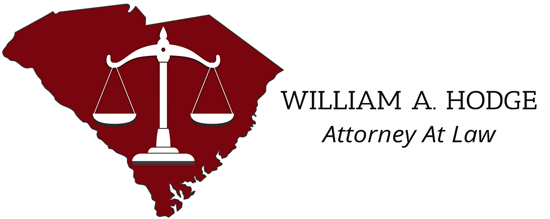HOW A JUVENILE RECORD CAN AFFECT DEFENDANTS FOR YEARS TO COME
All too often, juvenile defendants fail to appreciate the long-lasting consequences of a criminal case. A simple, youthful mistake can turn into a criminal record which follows a teenager well into adult life. Because of this, it is important that juvenile defendants have experienced legal counsel at all stages of criminal case proceedings in the juvenile court. Attorney William A. Hodge is an experienced South Carolina criminal defense attorney with extensive knowledge regarding the needs of juvenile defendants.
Like adult criminal records, juvenile records can be the subject of job application questions throughout adult life. In addition to employment, education can also be affected by a crime committed by a juvenile. Many college applications, scholarship applications, student loans, and other issues surrounding secondary education can be jeopardized by the outcome of a juvenile criminal case. So can residential issues. Apartment rental applications, mortgage applications, and other housing forms often ask about the applicant’s criminal history. If restitution has been ordered and remains unpaid, a juvenile conviction can even affect an adult’s credit rating. These employment, education, and housing issues are not automatically resolved when the defendant turns eighteen years old. Unless a juvenile record is properly expunged by a court, it remains a criminal record which can impact major aspects of a person’s life.
Expungement of Juvenile Records
Expungement is a legal process by which a judge orders court records to be destroyed. Certain juvenile records can be destroyed by court order, and this can help a defendant move into adult life unencumbered by the stigma of a criminal record. But this process does not happen automatically. A defendant must make a motion to the court and prove that the charges are eligible for expungement. This process is detailed in Section 63-19-2050 of the South Carolina Code of Laws. The charge in question must be either a status offense or a nonviolent crime. Violent crimes (as defined by statute) are not eligible for expungement. If the expungement is granted, the court can order the removal of all records related to being taken into custody, the charges filed against the defendant, the adjudication (conviction) of the defendant, and the disposition of the case.
An expungement is a helpful tool for adults looking to move past a juvenile criminal record. But in order to use this tool appropriately and effectively, the advice of an experienced criminal defense attorney is often necessary. An attorney can help adults petition the court for expungement of their records, prove that the charges are eligible for expungement, and ensure that all applicable records are covered by an expungement order.
The Right Attorney For Your Teen’s Defense
A juvenile record can affect a defendant for many years to come. It is important to mitigate the collateral damage caused by juvenile charges with the advice of an experienced criminal defense lawyer. Attorney William A. Hodge has decades of experience in defending both adult and juvenile criminal charges. He will help protect your teen’s legal rights throughout the criminal case process. Call (803) 457-2216 today to schedule your free consultation.
